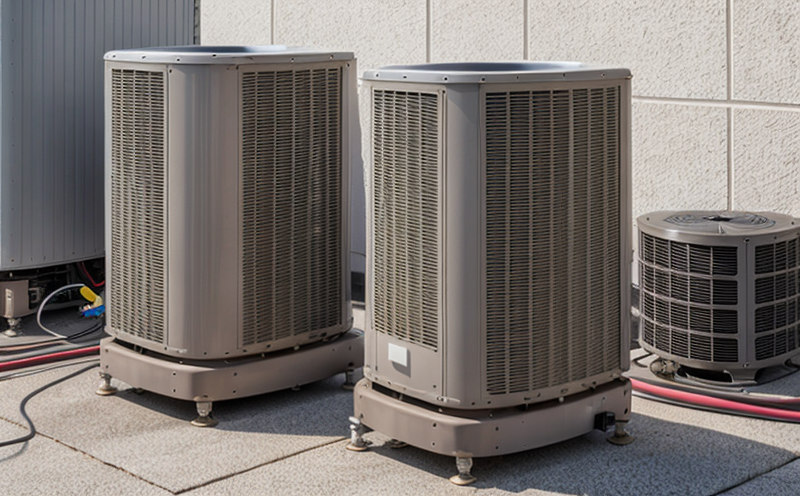Vibration Testing for Multi-Unit HVAC Systems in Commercial Applications
The Importance of Vibration Testing for Multi-Unit HVAC Systems in Commercial Applications
As a commercial property owner or manager, ensuring the smooth operation and efficiency of your buildings mechanical systems is crucial to maintaining a comfortable and productive environment for occupants, while also minimizing energy costs and reducing maintenance needs. One critical aspect of commercial HVAC system design and installation that often gets overlooked is vibration testing. Vibration testing for multi-unit HVAC systems in commercial applications is a laboratory service provided by Eurolab that helps identify potential issues before they cause damage or downtime.
What is Vibration Testing?
Vibration testing measures the mechanical vibrations generated by an HVAC systems equipment, such as fans, pumps, and compressors. These vibrations can be caused by various factors, including imbalances in rotating machinery, misalignment of components, or inadequate foundation design. If left unchecked, excessive vibration can lead to premature wear on moving parts, increased noise levels, and even catastrophic failures.
Why is Vibration Testing Essential for Commercial Applications?
In commercial settings, the consequences of neglecting vibration testing can be significant
Equipment Downtime Excessive vibration can cause equipment failure, resulting in costly downtime and lost productivity.
Energy Inefficiency Vibrating equipment can lead to increased energy consumption, higher utility bills, and a larger carbon footprint.
Noise Pollution Vibration-induced noise pollution can disrupt the work environment and create comfort issues for occupants.
Safety Risks Excessive vibration can compromise structural integrity, posing safety risks to building occupants and nearby facilities.
The Advantages of Using Eurolabs Vibration Testing Service
By incorporating vibration testing into your commercial HVAC system design and installation process, you can
Reduce Maintenance Costs Early detection of potential issues minimizes repair costs and extends equipment lifespan.
Increase Energy Efficiency Properly aligned and balanced machinery operates at optimal levels, reducing energy consumption and lowering utility bills.
Improve Occupant Comfort By minimizing noise pollution and vibration-induced structural damage, you create a more comfortable working environment for occupants.
Enhance System Reliability Regular vibration testing ensures equipment is functioning as designed, reducing downtime and promoting overall system reliability.
Benefits of Vibration Testing in Commercial HVAC Systems
Early Detection of Potential Issues Identify potential problems before they cause damage or downtime
Increased Equipment Life Reduce maintenance costs by extending the lifespan of your equipment
Improved System Efficiency Minimize energy consumption and lower utility bills with optimal system performance
Enhanced Safety Ensure equipment is operating as designed, reducing safety risks to occupants and nearby facilities
Key Benefits for Commercial Property Owners/Managers
Cost Savings Reduce maintenance costs by addressing potential issues early on
Increased Productivity Minimize downtime and promote a productive work environment
Improved Tenant Satisfaction Ensure comfortable working conditions for tenants, reducing turnover rates and improving overall property value
Key Benefits for Architects and Engineers
Design Optimization Ensure equipment is properly designed and installed to meet system requirements
Code Compliance Meet or exceed industry standards and regulations for vibration testing in commercial HVAC systems
Risk Reduction Minimize liability by demonstrating a commitment to system reliability and occupant safety
Frequently Asked Questions (FAQs)
Q What types of equipment can be tested using Eurolabs vibration testing service?
A Our lab can test various types of commercial HVAC equipment, including fans, pumps, compressors, chillers, and heat exchangers.
Q How is the vibration testing process typically conducted?
A The testing process involves collecting data on the systems vibrations at multiple locations using specialized sensors. This information helps identify potential issues and areas for improvement.
Q What are some common causes of excessive vibration in commercial HVAC systems?
A Causes can include equipment imbalance, misalignment, inadequate foundation design, or worn-out bearings.
Q How often should vibration testing be performed on commercial HVAC systems?
A Regular testing (e.g., every 6-12 months) is recommended to catch potential issues early and prevent costly downtime.
Conclusion
In conclusion, vibration testing for multi-unit HVAC systems in commercial applications is an essential laboratory service provided by Eurolab. By incorporating this critical aspect of system design and installation, you can minimize maintenance costs, increase energy efficiency, improve occupant comfort, and enhance overall system reliability. Whether youre a commercial property owner/manager, architect, or engineer, investing in vibration testing from Eurolab is an essential step towards creating a safe, efficient, and productive work environment.
Learn More About Vibration Testing for Multi-Unit HVAC Systems
Contact us to schedule your vibration testing service today!




